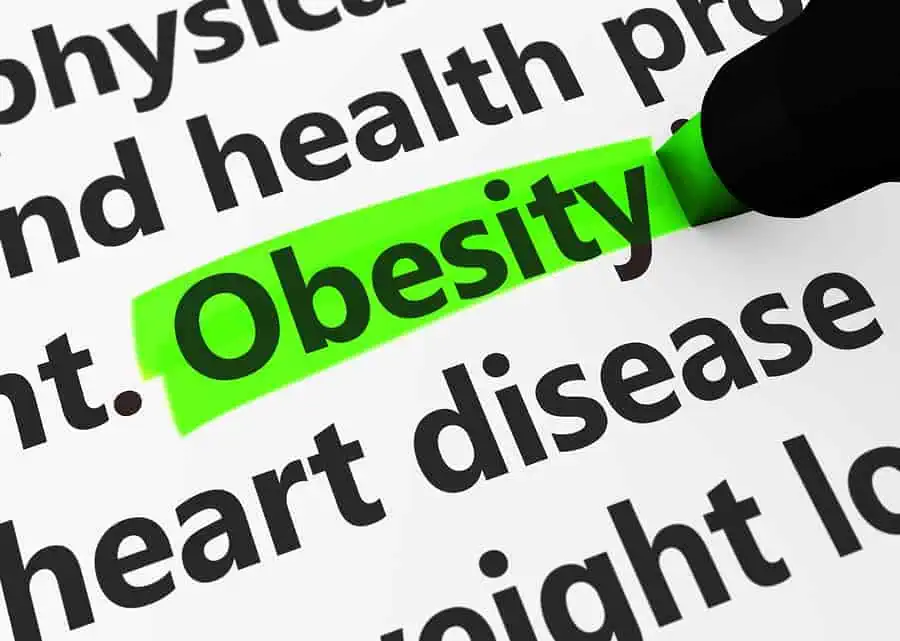Obese individuals may be unable to work because of their condition and its related complications. Patients who find themselves unable to work because of their obesity may qualify for long-term disability (LTD) benefits. The insurance company will review their claim to see if they qualify under the conditions of that plan.
What Is Obesity?
Obesity is defined as having a body mass index (BMI) of over 30. Morbid obesity is defined by a BMI of over 40. The health issues surrounding obesity are extensive. It makes it hard to keep an active lifestyle and causes joint pain, fatigue, breathing problems, heart disease, stroke, and diabetes. The exact cause of obesity is unknown, but some factors of obesity include genetic disorders, other health issues, environmental factors, and mental illness.

The diagnosis of obesity itself is not sufficient to receive long-term disability benefits. But complications due to your obesity can qualify you for benefits like heart disease, stroke, joint disorders, and diabetes. These complications can cause you to miss work frequently or be unable to perform your duties as assigned.
There is one known disorder related to obesity called obesity hypoventilation syndrome (OHS). Obesity hypoventilation syndrome is a breathing disorder that affects obese people. Excess body fat around the abdomen, neck, and chest make it hard for the person to take a deep breath. This causes a build-up of carbon dioxide and unusual hormone changes in the body. Conditions that are associated with OHS are pulmonary hypertension, respiratory failure, and heart failure.
Life with Obesity
Living with obesity can be challenging. The many health problems that you will face can cause depression and anxiety. Sleep apnea (not getting enough oxygen or expelling enough carbon dioxide while sleeping) leads to chronic fatigue or sluggishness. Swollen legs and feet make it difficult to stay active, which can create sores on the body. Pain is often associated with these symptoms and should be noted by your doctor. Having enough income to care for yourself is essential, and long-term disability benefits can help you.
Filing for Long-Term Disability
Excessive body fat can limit your ability to do many things at work like reaching in tight spaces, lifting heavy objects, and performing manual duties (like shoveling, changing tires), or standing for long periods of time. If you are unable to work due to complications from obesity, you can apply for long-term disability.
When you file for long-term disability, the insurance company will ask you to have your doctor complete a residual functional capacity (RFC) form to determine what your limitations are. This form will explain the most you can do and will be strong evidence used in your claim. For this reason, we suggest making an appointment and having the doctor complete this form in your presence so that nothing is left off or understated. Be sure your doctor is very clear on what your limitations are when he completes your RFC.
You will also want to provide them with the following information:
- Medical imaging results (x-rays, CT scans, and MRI’s);
- A list of all medical providers that you have seen for your condition; and
- A letter from each provider stating your condition prevents you from working. (But this is not in place of your RFC form.)
By creating a strong administrative file, you are increasing your chance for approval.
A Note About Timelines
When filing your claim, be mindful of the strict timelines. The insurance company has a vested interest in seeing your claim denied. If you miss a deadline, that gives them a reason to deny your claim. Your policy will outline the timeline structure. You can obtain a copy of your policy from your human resources department.
Claim Wrongfully Denied or Terminated? We Can Help You!
An experienced disability attorney can help you gather the necessary medical information needed for your claim. They can help you track your deadlines (which are very strict), gather evidence such as medical statements/opinions from your doctors, and communicate with the insurance company for you.
While the process can be daunting, your experienced disability attorney will be able to guide you through the process. They do not get paid until you win your case. You can seek help without worrying about upfront costs or unexpected bills.
The Ortiz Law Firm has successfully represented people in disability cases across the United States. If you would like to talk to an experienced disability lawyer about your obesity and its impact on your ability to work, call us at (888) 321-8131. We would be happy to evaluate your case and to discuss how to help you through the appeal process.

